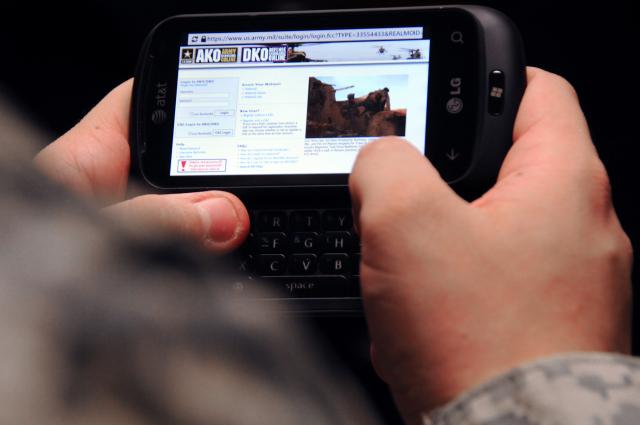The U.S. government’s top information and technology officials today announced a mobile device initiative that’s part of an agency-wide modernization effort.
Chief Information Officer Steven VanRoekel and Chief Technology Officer Todd Park said the push to make new and useful mobile device services available fits into a digital strategy in which major federal agencies — including the Defense Department — will make two key government services available on mobile phones within the next 12 months.
“This consumerization of technology, even compared to three years ago, now [shows that] nearly everyone carries smart devices in their pockets,” VanRoekel said. He added that the sophistication in computing power has spurred citizens to demand greater access to sites and organizations.
Defense officials said the department will soon announce its plan to provide the new services.
“Americans deserve a government that works for them anytime, anywhere, and on any device,” President Barack Obama said in a White House news release issued today. “By making important services accessible from your phone and sharing government data with entrepreneurs, we are giving hard-working families and businesses tools that will help them succeed.”
Mobile is rapidly becoming the platform of choice for Americans, and it is anticipated that by 2015 more people will be accessing the Internet via mobile phones than via traditional desktop computers, officials said.
“For decades we’ve been locking government data up in paper files or non-searchable documents,” VanRoekel said. “This strategy marks a new approach to data.”
Park added that the strategy brings together the best government thinkers in digital innovation and engages the private sector.
He cited Blue Button for America, a VA effort rescaled in conjunction with the DOD, Medicare and various private sector organizations, in which military, families and Medicare seniors can download copies of their own data.
“The point of Blue Button for America is to help spread adoption of that capability across more and more organizations [so that] more Americans have access to their own personal health data in a secure way,” Park said.











